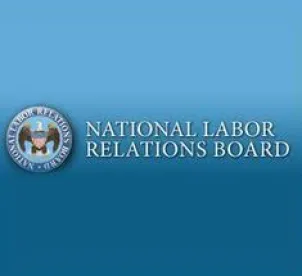-
New Board Members and a New General Counsel Set the Stage
In August 2017, Marvin E. Kaplan, a Trump nominee, was sworn in as a Board member, followed shortly afterwards by William J. Emanuel, joining then-Chairman Philip A. Miscimarra, to give the Board its first 3-2 Republican majority in more than eight years. While Chairman Miscimarra’s term expired on December 16, 2017, during the months that he was part of the majority with Members Emanuel and Kaplan, the Board decided a number of significant cases in which it overruled Obama-era holdings. These are discussed in detail in the following portions of this Take 5.
On November 8, 2017, after the conclusion of the term of Obama-appointee Richard F. Griffin, Jr., Peter B. Robb was sworn in as the Board’s General Counsel. According to the NLRB website, as General Counsel, Mr. Robb “is independent from the Board and is responsible for the investigation and prosecution of unfair labor practice cases and for the general supervision of the NLRB field offices in the processing of cases.”
On January 12, 2018, President Trump nominated management-side labor lawyer John Ring to replace the vacancy left by Miscimarra’s departure. If confirmed, Mr. Ring should provide the majority necessary to carry out the agenda detailed below.
-
The General Counsel’s Agenda
In December, General Counsel Robb issued Memorandum GC 18-02(“Mandatory Submissions Memo”), identifying those issues to be reviewed and reconsidered and where he is likely to ask the Board to reconsider and change how it interprets and applies the Act. Those identified include not only “cases that involve significant legal issues,” but significantly all “cases over the last eight years that overruled precedent and involved one or more dissents, cases involving issues that the Board has not decided, and any other cases that the Region believes will be of importance to the General Counsel.” In other words, every case in which the Obama Board overruled prior precedents will be carefully examined by the General Counsel.
The Mandatory Submissions Memo identifies a broad swath of recent Board precedents and topics that must be submitted to Advice, where there is a good chance that the new General Counsel will ask the Board to return to pre-Obama Board interpretations of the Act and practices. These precedents include:
- The Use of an Employer’s Email Systems for Union Activity: All cases involving claims based on Purple Communications’ holding that “employees have a presumptive right to use their employer’s email systems to engage in Section 7 activities” will be reviewed. According to the Mandatory Submissions Memo, General Counsel Robb is effectively overruling prior Advice Memoranda in which his predecessor noted his initiative “to extend Purple Communications to other [employer-owned] electronic systems,” such as the Internet, phones, and instant messaging systems that employees regularly use in the course of their work.
- Cases in Which the Obama Board Expanded the Definition of “Concerted Activity for Mutual Aid and Protection”: In cases such as Fresh & Easy Neighborhood Market, 361 NLRB No. 12 (2014), the Obama Board expanded the circumstances in which it would find an employee’s actions to be protected, holding that conduct was for mutual aid and protection even when “only one employee had an immediate stake in the outcome.”
- Cases Involving “Obscene, Vulgar, or Other Highly Inappropriate Conduct”: The new General Counsel will be considering whether the Board went too far in cases such as Pier Sixty, LLC, 362 NLRB No. 59 (2015), which held that even expletive-laden Facebook posts hurling vulgar attacks at a manager, his manager’s mother, and his family were protected by the Act.
The Mandatory Submissions Memo also identifies each of the following as issues that must be submitted to Advice:
- work stoppages on employer premises;
- the circumstances in which employers may restrict access to employer property at times when employees are off duty;
- the recent expansion of Weingarten rights in the context of employer-mandated drug testing;
- employer obligations and rights with respect to wage increases during bargaining, where the increases are provided to unrepresented employees but not the employees whose wages and increases are being bargained;
- claims by unions that employers are successors by virtue of their hiring a predecessor’s employees as required by local laws;
- the circumstances in which a new employer will be found to be a “perfectly clear successor” and obligated to follow its predecessor’s terms and conditions rather than being free to set new terms and conditions for those it hires from a predecessor’s workforce;
- whether an employer must disclose and produce witness statements prior to arbitrations; and
- whether employers will be required to continue to honor contractual dues check-off provisions after a collective bargaining agreement expires.
There is no doubt that the list will continue to grow and be refined.




 />i
/>i

